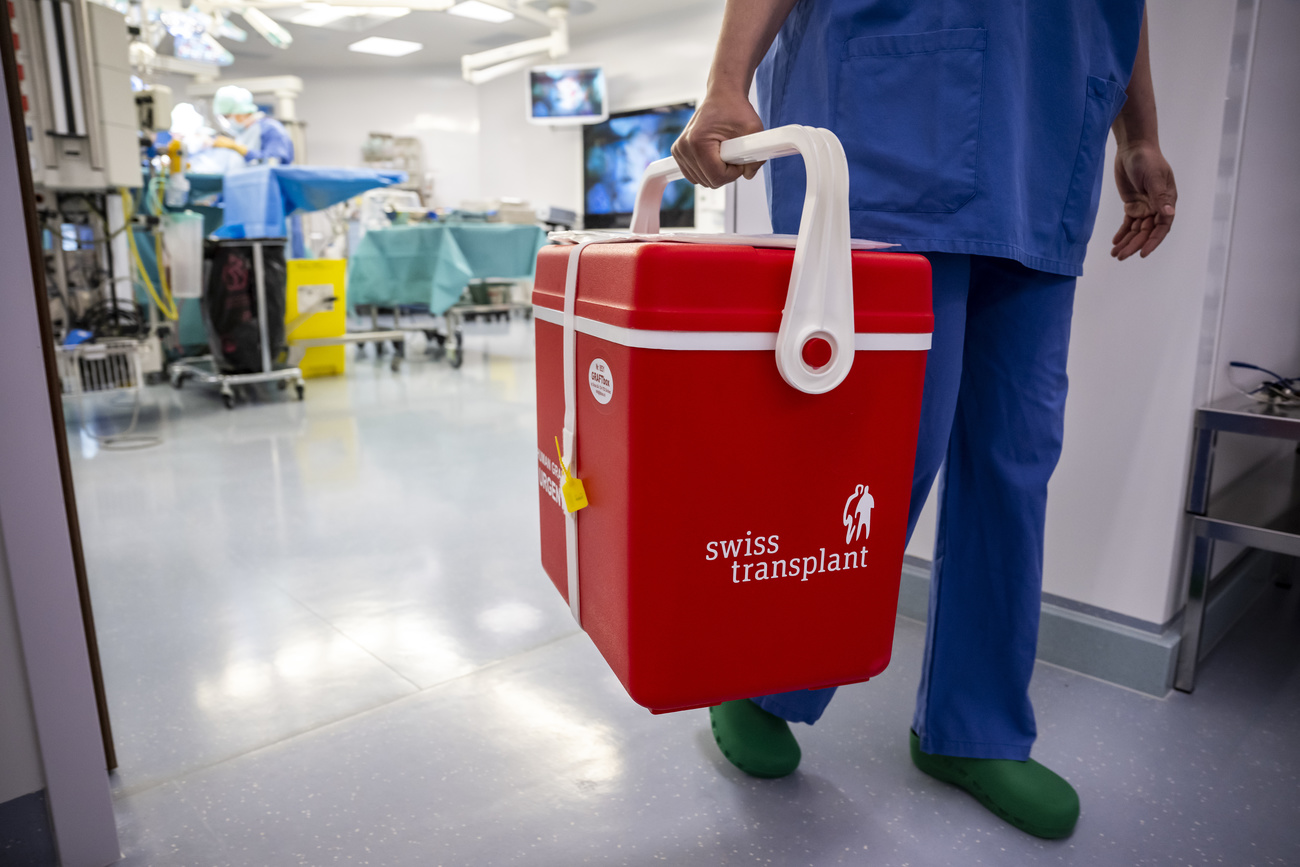Record organ donation in Switzerland despite high rejection rates

More organ donations were recorded in Switzerland in 2023 than ever before. This was despite a high rejection rate of 58% by surviving relatives.
The annual report published on Tuesday by Swisstransplant, the national foundation for organ donation and transplantation, also shows that more organs were transplanted than ever.
A total of 675 people on the waiting list received an urgently needed organ in 2023. In the same period, 225 people were reported to Swisstransplant by families of deceased persons for a review of a possible organ donation after death. This figure is high if the 58% rejection rate by surviving relatives is taken into account, Swisstransplant added.
Two hundred of them actually became organ donors. According to Swisstransplant, no organs were used with 25 of them. The causes of death of the 200 organ donors were oxygen deficiency in 83 cases, cerebral haemorrhage or stroke in 82 cases, traumatic brain injury in 30 cases and other causes in the remaining five cases.
Majority of relatives against organ donation
According to Swisstransplant, there are around 70,000 deaths in Switzerland every year. Of these, just under 4,000 people die in hospital in intensive care. In around 700 cases, a discussion with relatives takes place with the question of organ donation – with the question of corneal donation in well over 2,000 cases.
The extended consent solution currently still applies to organ donations in Switzerland. If the person being considered as a donor or their relatives do not expressly consent to organ donation, the organs may not be donated in the event of death. If the wishes of the deceased are not known, the majority of relatives currently decide against organ donation, according to Swisstransplant.
Extended objection solution expected in 2026
In future, however, anyone who does not wish to donate organs and tissue after death must state this. In May 2022, voters approved the proposal by the government and parliament that the extended opt-out solution should now apply. It should come into force in 2026. The new organ donation register, which is essential for the system change, should also be available by then.
+ Voters give consent to new ‘opt-out’ system of organ donation
With the extended objection solution, it is assumed that if the deceased person has not made a decision, they would agree to organ donation. This means that in future everyone will in principle be considered a donor. However, relatives can object to the removal of organs if they are aware that the deceased person would not have wanted to donate their organs. In most European countries, the objection solution currently applies.
Translated from German by DeepL/ts
This news story has been written and carefully fact-checked by an external editorial team. At SWI swissinfo.ch we select the most relevant news for an international audience and use automatic translation tools such as DeepL to translate it into English. Providing you with automatically translated news gives us the time to write more in-depth articles.
If you want to know more about how we work, have a look here, and if you have feedback on this news story please write to english@swissinfo.ch.

In compliance with the JTI standards
More: SWI swissinfo.ch certified by the Journalism Trust Initiative


















You can find an overview of ongoing debates with our journalists here . Please join us!
If you want to start a conversation about a topic raised in this article or want to report factual errors, email us at english@swissinfo.ch.